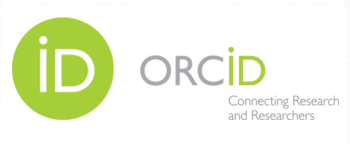ORCID Overview

With the evolution of the internet and new forms of scholarly communication, the globalization of research, more emphasis on interdisciplinary research, researchers moving from one field to another, researchers being more mobile -- to name just a few -- the issues associated with finding and keeping track of a scholar’s research has magnified significantly.
Additionally, there is increased interest – on the part of universities, research institutes, funding agencies – in tracking research (publications, data sets, websites, software, patents, grants, etc.) and connecting them to create a “story” that demonstrates the value of each researcher’s contributions, the value of the institution’s aggregated research endeavors, and the return on investment for the agencies that fund research initiatives.
Your name is key to establishing a unique public profile throughout your scholarly career -- no matter what kind of scholarship you pursue. However, most name's aren't unique, and everyone's name is subject to variants. Having a unique, persistent, recognized identifier to which all of your scholarship is linked is invaluable in an online environment. Although other scholar identification systems exist (Author ID (Elsevier/Scopus), ISNI (International Standard Name Identifier), Researcher ID (Thomson Reuters/Web of Science)), research institutions, publishers, and funders are rapidly adopting ORCID as a standard. Your ORCID iD builds your academic identity by:
- Showcasing all of your accomplishments -- publications, datasets, slide presentations, videos, grants, patents, etc. -- especially important for young/new researchers.
- Attracting collaborators who encounter your ORCID profile.
- Providing a single source for information about you for publication and funding processes.
- Identifying all of your name variations, throughout your career.
Why can ORCID do this more effectively than existing scholar identifiers? Because:
- ORCID iD’s are global (they work around the world)
- ORCID iD’s are persistent (they identify you over your career regardless of your affiliation or employment status)
- ORCID respects privacy (iD holders are free to set their profile information to be as public or as private as desired)
- ORCID iD’s are portable (they go with you when or if you leave Baylor University or any other institution)
- ORCID iD’s are anonymous and secure (the 16-digit numeric identifier is randomly generated—no connection to age, nationality, place of origin, gender, or any other personal attribute)
- ORCID iD’s are interoperable (they work both in open information systems across the Internet and in private systems used by a particular university, publisher, agency, etc.)
- ORCID iD’s are not-for-profit (they are an international standard that representatives from both commercial and not-for-profit sectors have agreed to use, so their systems can work together for the greater good)
- ORCID iD’s are platform-agnostic, discipline-neutral, and publisher-independent (they work for everyone, regardless of field, publishing preferences, or preferred computing operating system)
- ORCIDs are free to acquire or maintain. ORCID is a not-for-profit organization.
[Adapted from Establishing Your Scholarly/Professional Identity with ORCID: A Care and Feeding Manual for Graduate Students, http://hdl.handle.net/1969.1/151483]
What is the adoption rate for ORCID?
Create Your ORCID iD
- Go to: https://orcid.org/register
- Complete the information on the form (name, e-mail, set a password).
- Determine the default level of privacy you want.

Everyone 
Trusted Parties 
Only Me - Un-select notification e-mail check boxes according to your preference.
- Select the "Terms of Use" checkbox -- required to register.
- Click the "Register" button.
- Provide the Baylor Libraries with your ORCID iD by completing this form.
For more information check out the ORCID research guide or documentation at ORCID.
Links to Profile sites
-
ORCIDProvides a persistent digital identifier that distinguishes you from every other researcher and, through integration in key research workflows such as manuscript and grant submission, supports automated links between you and your professional activities ensuring that your work is recognized.
-
Google ProfileCreates a Google+ Profile, which comes up high in search rankings.
-
Google Scholar ProfileCan add list of publications, set up alerts, etc. When someone searches for your name in Google Scholar, your profile page with all your works will come up.
-
About.meAggregates your social media sites, other pages, etc. all into one landing page.
Futher Reading on ORCID
-
Disambiguating Author Names: Part TwoSerials Librarian, 2016/04/01
-
Early Adopters of ORCID Functionality Enabling Recognition of Peer Review: Two Brief Case StudiesLearned Publishing, 2016/01
-
Everything You Ever Wanted Know About ORCID . . . but were Afraid to AskCollege and Research Libraries News, 2016/01/01
-
ORCID is a Wonderful (But Not Required) Tool for Authors [editorial]Clinical Orthopaedics and Related Research® 2016/02/25
-
ORCID: What, Why, How?BioMed Central Blog, 2016/04/05
-
ProQuest Adds ORCID to Its Dissertations and Theses DatabaseJournal of Engineering, 2015/10/26
-
ProQuest Now Has Automated Updates from ORCID to Scholar Profiles in PivotOnline Searcher, 2016/05/01
-
Publishers Embrace Scheme to End Name ConfusionScience, 2016/01/15
-
Ten Things You Need to KnowORCID Blog, 2014/04/25
-
Why Some Publishers are Requiring ORCID iDs for Authors: An Interview with Stuart Taylor, The Royal SocietyScholarly Kitchen Blog 2016/01/07
-
Your Name is Not Good Enough: Introducing the ORCID Researcher Identifier at Imperial College LondonInsights the UKSG Journal, 2015/11/01



